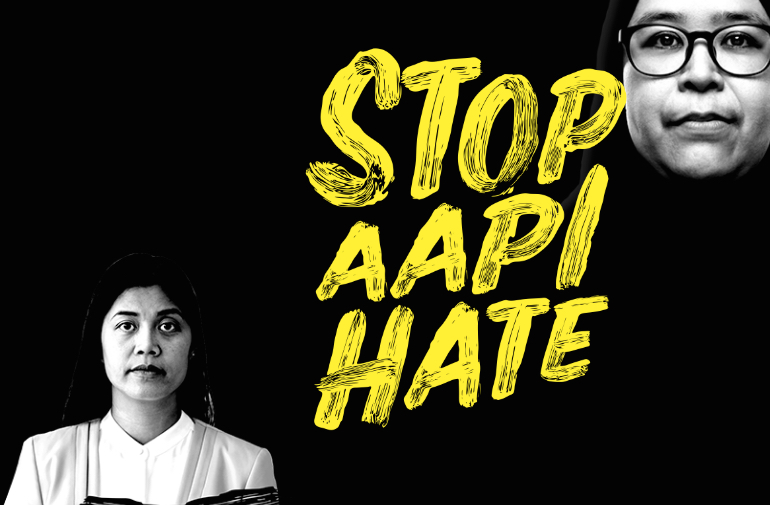 AS the Lunar New Year kicks off, the atmosphere among the Asian American and Pacific Islander (AAPI) community is hardly a celebratory one.
AS the Lunar New Year kicks off, the atmosphere among the Asian American and Pacific Islander (AAPI) community is hardly a celebratory one.
A disturbing string of recent violent assaults against elderly AAPIs across the nation has inspired greater activism from prominent AAPIs — as well as activists from other communities of color — to stop what are being labeled as hate crimes against Asians, as reported in the Asian Journal this week.
The recent attacks, which have occurred in major cities, all involved violence. Vicha Ratanapakdee, an 84-year-old Thai American man, died after an assailant shoved him to the ground in San Francisco on Jan. 28.
Just three days later on Jan. 31, three different Asian American elderly people were attacked by presumably the same suspect in broad daylight in Oakland’s Chinatown (the suspect is currently in police custody).
On Feb. 3 in New York City, a passenger slashed the face of a 61-year-old Filipino man named Noel Quintana on the subway.
The recent attacks are just the latest in a coronavirus pandemic that has been punctuated by anti-Asian harassment, bullying and violence.
The Stop AAPI Hate initiative — started by the Asian Pacific Policy and Planning Council (A3PCON), Chinese for Affirmative Action and the Asian American Studies Department of SF State University — logged 2,808 reported hate incidents against the AAPI community in 2020, and more than 700 of those reports came from the Bay Area.
“Since the start of the pandemic, Asian and Pacific Islander Americans have felt the brunt of the previous president’s racist rhetoric, which wrongly associated the virus with a single race of people and then stood back as [AAPIs] fell victim to thousands of incidents of discrimination and violence,” California Sen. Richard Pan (D-Sacramento), who is the chair of the California Asian Pacific Islander Legislative Caucus, said in a statement along with Vice Chair Assemblymember Evan Low (D-San Jose).
As a way to prepare people who may encounter anti-Asian harassment, Asian Americans Advancing Justice | AAJC and the anti-bullying organization Hollaback! have announced new days for their three-part training series designed to train individuals on how “they can do their part in standing against hatred.”
The anti-harassment training teaches individuals how to de-escalate conflicts by intervening in a number of ways. It also teaches Asian Americans how to protect themselves and practice self-care.
“This resurgence of anti-Asian and anti-Asian American hate is just the latest wave from extensive structural racism that has historically impacted communities of color,” said Emily May, executive director of Hollaback! “Part of that journey toward a world intolerant of hate starts with proactively equipping individuals with tools to protect themselves and their community.”
In 2020, at the height of anti-Asian hate that swept the nation in the early phases of the pandemic, more than 16,000 people attended the training. Back then, the activism surrounding anti-Asian sentiments were largely attributed to then-President Donald Trump — and a number of conservative lawmakers and pundits — who frequently used the derogatory terms like “China virus,” “Wuhan virus” or the, arguably, more offensive “Kung-flu.”
President Joe Biden has promised to make up for the perceived lack of support from the White House by formally disavowing the racist, inflammatory language that continues to alienate the AAPI community.
“The events of this year have given many of us a gut check and a reminder that even as we usher in a new Congress and new administration, hate is still alive and well in our country,” said Marita Etcubanez, director of strategic initiatives at Advancing Justice.
Despite the significance of Biden’s largely symbolic move to denounce anti-Asian hate within his first days in office, AAPI organizations and community leaders are calling for more legislative action from the White House and Congress — and state and local governments — to hold those who commit anti-Asian crimes accountable.
“Both President Biden’s Administration and Congress have condemned this racism in the past, but it has become clear that more action is necessary,” the National Council of Asian Pacific Americans (NCAPA), a coalition of dozens of AAPI groups, said in a joint statement this week.
“To governors and locally-elected officials: listen to Asian American leaders in your communities who have been doing this work every day. We need to see tangible solutions that prioritize investing in our communities to prevent violence, both systemic and interpersonal, rather than turning towards punitive methods that rely on systems that have continued to fail us.”







